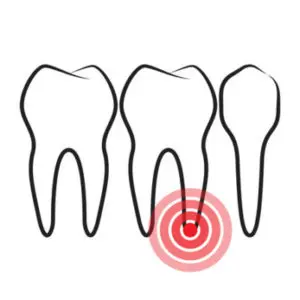 A root canal is a relatively common endodontic procedure that is performed when a simple filling cannot save a tooth. Many times, the pulp of a tooth will become inflamed or infected due to decay. Other times, people may suffer some type of trauma that causes and extensive crack or chip which compromises the integrity of the tooth. Sometimes even repeated dental procedures on a single tooth can necessitate a root canal procedure. No matter the reason, the procedure is typically the same and it is a minor process similar to a deep filling.
A root canal is a relatively common endodontic procedure that is performed when a simple filling cannot save a tooth. Many times, the pulp of a tooth will become inflamed or infected due to decay. Other times, people may suffer some type of trauma that causes and extensive crack or chip which compromises the integrity of the tooth. Sometimes even repeated dental procedures on a single tooth can necessitate a root canal procedure. No matter the reason, the procedure is typically the same and it is a minor process similar to a deep filling.
The Root Canal Process
A root canal is performed in a single visit because it is a simple procedure. During a root canal, the dentist first removes the pulp and nerve from the tooth. After which the area is gently but thoroughly cleaned. It will also be sealed to prevent further infection. Many times, you will go home with a temporary crown while a permanent crown is being fabricated in a dental laboratory. The permanent crown will be placed during a subsequent visit.
Root Canal Therapy Aftercare
Root canal aftercare is perhaps as important as the procedure itself. Your dental provider will provide specific instructions. If you have a temporary crown, it is important not to eat anything hard or sticky that could break it or pull it off. You will also want to avoid sucking through a straw until you have the permanent crown placed.
It is normal for the tooth to feel a little different at first because changes were made to its structure. However, there really shouldn’t be any discomfort. It is best to stick to soft, cold foods for the first few days because they will help soothe the area. You will also want to take extra care when brushing and flossing around the temporary crown. Be gentle, but thorough.
Once the permanent crown is placed, the area will feel normal again. If you have been told you need a root canal, or you have questions about the procedure, give our office a call. Saving a tooth is always the best option and many times a root canal can make that possible.







